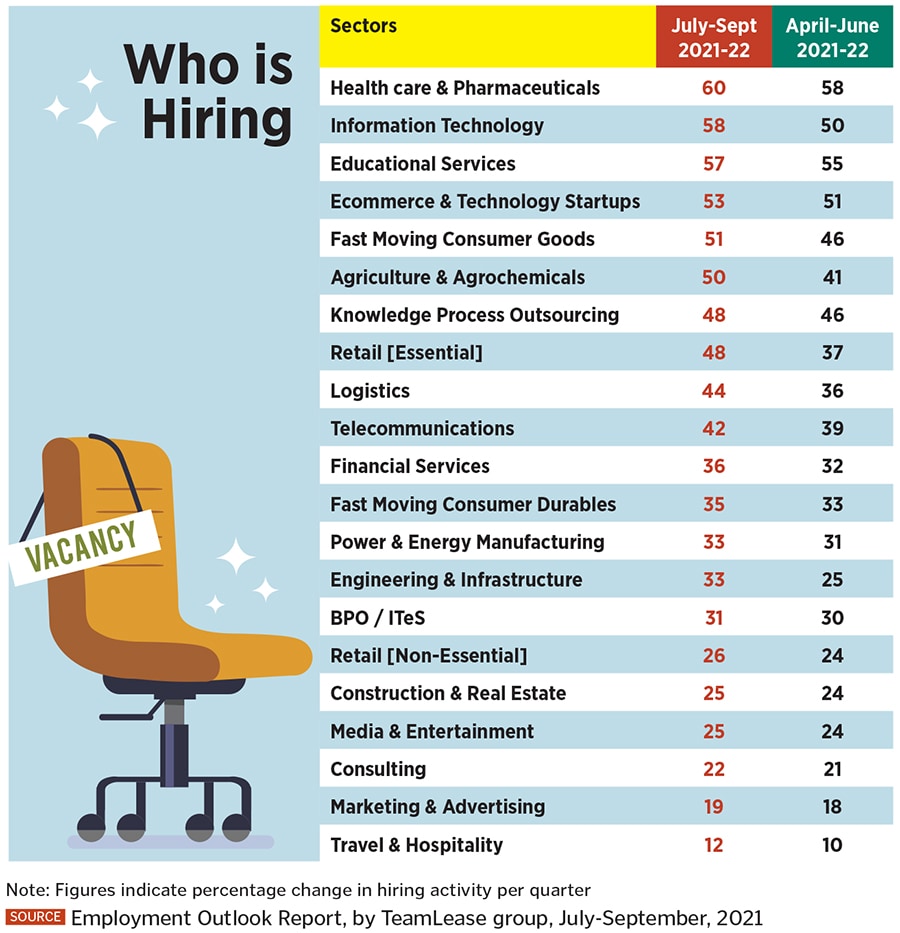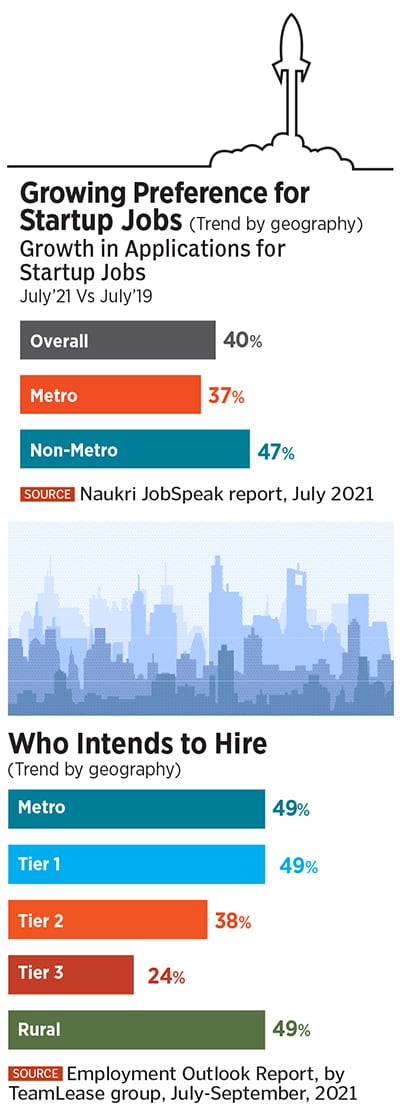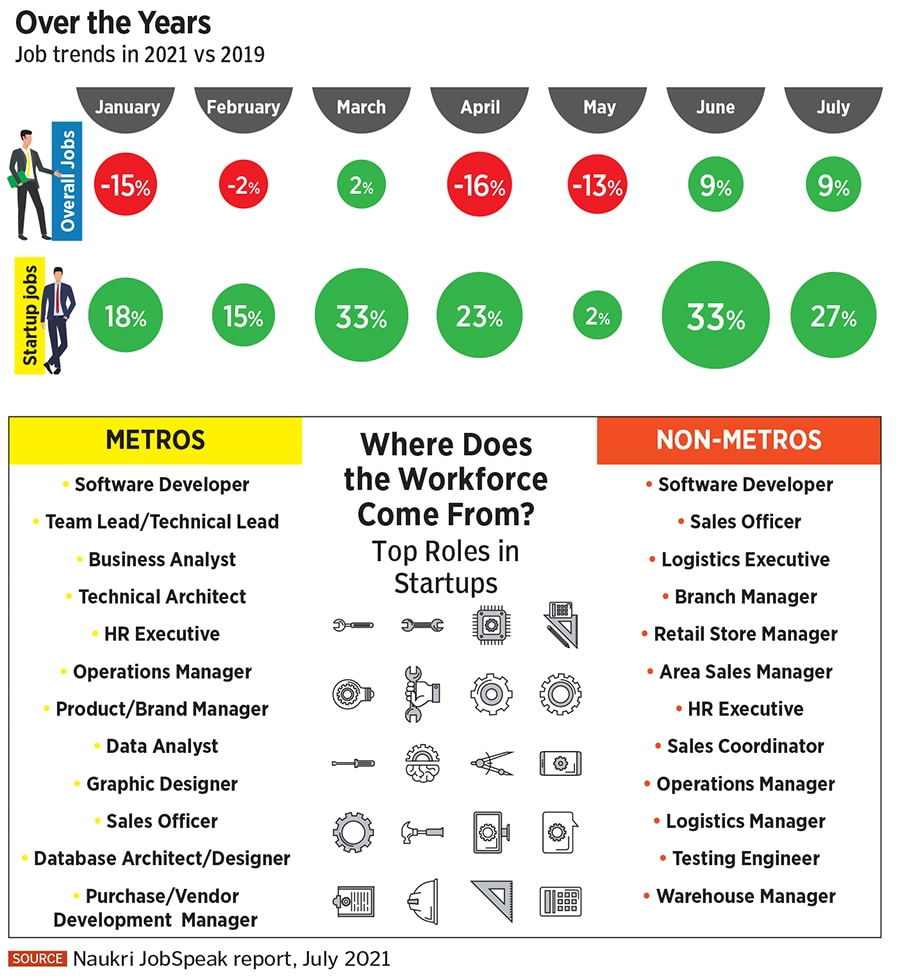
Flush with funds: Can startups revive India's economy?
When older companies started downsizing or shutting shop during the pandemic, startups continued to gain momentum. In 2021 alone, startups have raised more than $20 billion in funding
 Startups are a better bet over traditional companies as it gives employees the chance to experiment: Says Charu Gupta, Vice president, marketing and strategy planning at edtech
Startups are a better bet over traditional companies as it gives employees the chance to experiment: Says Charu Gupta, Vice president, marketing and strategy planning at edtech
startup Byju’s
For two years, Nagarjuna Cherivirala worked at a political strategy multinational company, but found little scope to make decisions or for personal development. Frustrated, he quit and decided to join a startup. “Startups, I feel, are the best platform to grow as a professional,” says the 27-year-old who, in 2019, joined Lokal, a hyperlocal regional language content application providing district-level news, jobs, and classifieds. “At Lokal, I have been actively devising strategies, taking decisions for the team, and doing much more than the scope of my role.” Today, he is the head of operations-classified business at Lokal and works with all the departments. “I get to experience every vertical, be it marketing, content management or market research.”
Charu Gupta says startups are a better bet over traditional companies as it gives employees the chance to experiment. “Even with 12 years of work experience, while looking for a job during the pandemic, I felt employers were taking candidates like me for granted. They would change the scope of work, not pay as per market standards, compromise the function or roles, and even the number of holidays,” says Gupta, who is now vice president, marketing and strategy planning at edtech startup Byju’s. “Now, working with a startup of this scale, not only do I have flexibility, but also the opportunity to learn by doing more than what is in my job description.”
What stands out in these cases is the zeal among professionals to find growth opportunities in startups that are increasingly offering better options with roles that are more challenging and flexible. Also, during the Covid-19 pandemic, when older companies started downsizing or shutting shop, startups continued to gain momentum. In 2021 alone, startups have raised more than $20 billion in funding, and more than 20 of them turned unicorn. This not only means new business opportunities, but also the creation of jobs across various sectors.
Education is one of them. With the rise of online learning, stakeholders, including parents and teachers, have undergone a change in mindset, and have accepted the integration of technology in learning. Consequently, the sector saw user growth, attracted venture capitalist (VC) funding, and generated a host of employment opportunities. Unacademy, for instance, increased its workforce from 600 in April 2020 to 4,000 this April; upGrad grew from 500 to 2,000 during the same period; and Byju's hired more than 5,000 employees, with plans to hire up to 8,000 more.
(This story appears in the 30 November, -0001 issue of Forbes India. To visit our Archives, click here.)




 At
At  Logistics company Ecom Express has opened up jobs for women in remote places, like Manipur
Logistics company Ecom Express has opened up jobs for women in remote places, like Manipur




